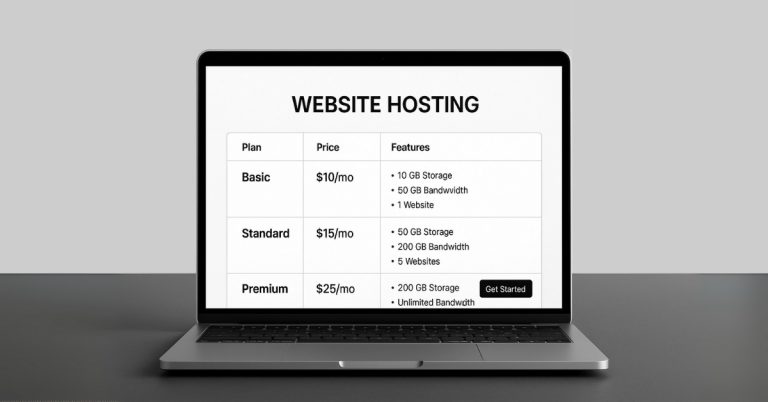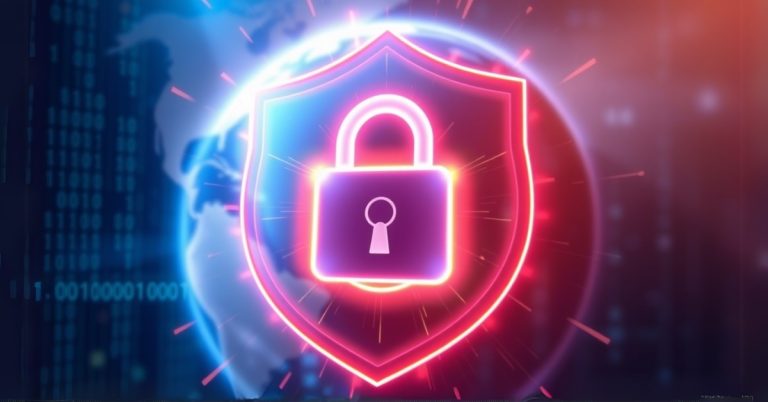PCI Compliant Web Hosting
PCI Compliant Web Hosting: Secure Your Business and Boost Customer Trust
If you handle sensitive customer data, whether it’s payment information or personal details, you need PCI-compliant web hosting. This isn’t just a recommendation; it’s essential for protecting your business, customers and reputation. In this article, we’ll dive deep into what PCI-compliant hosting is, how it works, its benefits, limitations and how you can leverage it to ensure your website is secure and trustworthy. Whether you’re running an eCommerce store or handling any form of online transactions, securing your website with PCI-compliant hosting is non-negotiable.
What is PCI Compliant Web Hosting?
At its core, PCI-compliant web hosting refers to a hosting environment that meets the requirements set by the Payment Card Industry Data Security Standard (PCI DSS). These standards are designed to ensure that any company that processes, stores, or transmits credit card information does so in a secure manner.
PCI DSS is a set of security standards created by major credit card companies (Visa, MasterCard, American Express, Discover, and JCB) to protect cardholder data. The goal of PCI-compliant hosting is to prevent data breaches and cyberattacks that target sensitive payment information.
Suppose you’re running an eCommerce business or any platform that processes payments online. In that case, a PCI-compliant hosting provider ensures that your website and payment system follow all the necessary security protocols. Without PCI compliance, you risk exposing your customers to fraud and your business to hefty fines, not to mention losing trust.
How Does PCI Compliant Hosting Work?
PCI compliance is a comprehensive set of security measures that goes far beyond just securing your website. It involves a full security framework to protect every point where cardholder data might be transmitted, processed, or stored. Here’s a breakdown of what makes hosting PCI compliant:
i) SSL/TLS Encryption
PCI-compliant hosts use Secure Sockets Layer (SSL) or Transport Layer Security (TLS) encryption protocols to secure data between the user’s browser and your website. This encryption protects sensitive data such as credit card numbers, personal information, and login credentials as it moves across the web.
ii) Firewall Protection
A PCI-compliant host will have a robust firewall in place to shield your website and servers from unauthorised access. This is particularly important in preventing hackers from accessing or stealing your customer data.
iii) Regular Security Audits
Compliance with PCI DSS requires regular security assessments to ensure that all systems handling payment data are secure. Many hosting providers conduct penetration testing and vulnerability assessments as part of their compliance routine.
iv) Data Encryption
All sensitive data stored on the servers is encrypted, making it unreadable to unauthorized users. PCI-compliant web hosting providers enforce strict encryption protocols for both data at rest and data in transit.
v) Access Control
PCI-compliant hosting ensures that only authorised personnel have access to cardholder data. Multi-factor authentication (MFA) is a common practice to provide an additional layer of protection.
Benefits of PCI Compliant Hosting
There are several compelling reasons why PCI-compliant web hosting should be a priority for businesses handling payments online. Here are the top benefits
i) Enhanced Security
By choosing PCI-compliant hosting, you’re ensuring that industry-standard security measures protect your website. This drastically reduces the risk of data breaches and fraud, keeping your customers’ sensitive information safe.
ii) Increased Customer Trust
Customers are more likely to purchase from websites that are PCI compliant. By showcasing your commitment to security, you’re not only protecting your business but also building a strong foundation of trust with your customers.
iii) Avoid Costly Fines
If your website fails to meet PCI DSS standards and is compromised, you could face hefty fines, not to mention the potential costs of recovery, legal fees, and reputational damage. Choosing PCI-compliant hosting protects you from such financial risks.
iv) Compliance with Industry Standards
Meeting PCI DSS compliance standards also helps you stay aligned with other regulations, such as GDPR for data protection and privacy. This ensures that your business adheres to all necessary rules and avoids legal complications.
v) Peace of Mind
When you’re confident that your website is protected by PCI-compliant hosting, you can focus on growing your business instead of worrying about security threats.
Limitations of PCI Compliant Hosting
While PCI-compliant hosting offers many benefits, it’s essential to understand its limitations
i) Higher Costs
PCI-compliant hosting can be more expensive than standard hosting. The cost comes from the advanced security features, regular audits, and encryption protocols that are required for compliance.
ii) Complex Setup and Maintenance
Achieving and maintaining PCI compliance can be complex, particularly for small businesses. It requires constant monitoring, updates, and security testing to ensure continued compliance.
iii) Limited Flexibility
Some hosting providers that offer PCI-compliant services might limit your customization options. This could be an issue for businesses that need specific configurations for their web applications or servers.
Choosing the Right PCI Compliant Hosting Provider
When choosing a PCI-compliant hosting provider, you need to ensure that they offer the necessary features, security and compliance. Below is a breakdown of factors to consider when making your decision
i) Certifications and Compliance
Always verify that your hosting provider is fully compliant with PCI DSS. Look for their certifications and check if they undergo regular audits.
ii) Reputation and Trust
Reputable hosting companies like Webhostifier offer secure PCI-compliant hosting services. Webhostifier, for example, is known for its robust security measures, uptime reliability and excellent customer support. They provide end-to-end encryption, firewalls and continuous monitoring to meet PCI standards, making them an excellent choice for businesses seeking compliance.
iii) Security Features
Your provider should offer SSL/TLS certificates, robust firewalls, encrypted storage, and regular security audits. These features are critical for ensuring PCI compliance and protecting customer data.
iv) Support and Guidance
Choose a provider that offers strong support to guide you through the compliance process. A good hosting company will assist with the setup, explain the requirements, and help you maintain compliance.
Practical Applications for PCI Compliant Hosting
PCI-compliant hosting is indispensable for various types of businesses, especially in the eCommerce and payment processing sectors. Here are some practical applications:
i) eCommerce Websites
Any business that processes credit card payments online must use PCI-compliant hosting. Without it, you risk exposing sensitive customer data and facing significant legal and financial consequences.
ii) Online Payment Services
Payment gateways and processors that handle financial transactions on behalf of other businesses are required to use PCI-compliant hosting. This ensures that they protect their clients’ sensitive information.
iii) SaaS Platforms
SaaS (Software as a Service) platforms that handle payment data must also be PCI compliant. For example, subscription-based services that store billing information need to ensure their hosting environment complies with PCI standards.
Common Mistakes and Myths about PCI Compliant Hosting
Many businesses misunderstand or overlook key aspects of PCI-compliant hosting. Here are some common mistakes and myths to avoid.
1. PCI Compliant Hosting is Only for eCommerce Sites
While eCommerce sites are the most obvious users of PCI-compliant hosting, any business that handles customer payment data (including SaaS companies) must ensure its hosting environment is PCI-compliant.
2. Assuming Shared Hosting Can Be PCI Compliant
Shared hosting environments often lack the security necessary to meet PCI DSS standards. Businesses that process payment data should opt for dedicated or virtual private servers (VPS) that provide the necessary isolation and control over security settings.
3. PCI Compliance is a One-Time Effort
PCI compliance requires continuous monitoring, updates, and security measures. It’s an ongoing process, not a one-time checklist.
Tips for Maintaining PCI Compliance
Maintaining PCI compliance is not a set-it-and-forget-it task. Here are some practical tips for staying compliant.
- Conduct Regular Security Audits: Regularly assess your hosting environment to identify vulnerabilities.
- Use Strong Passwords and MFA: Protect your servers and accounts with strong passwords and multi-factor authentication.
- Keep Software Updated: Ensure that all your software, plugins, and systems are up to date with the latest security patches.
- Employee Training: Educate your staff on the importance of PCI compliance and security best practices.
Conclusion
In today’s digital age, ensuring your website is PCI compliant is not just a regulatory requirement—it’s a competitive advantage. With PCI-compliant web hosting, you not only protect your business from data breaches and legal trouble but also build trust with your customers.
Choosing a reputable hosting provider like Webhostifier will simplify the process, allowing you to focus on what matters-growing your business. Remember, PCI compliance is an ongoing process and staying ahead of potential security threats should always be a top priority.
Frequently Asked Questions
What is PCI-compliant web hosting?
PCI-compliant web hosting refers to a hosting environment that meets the standards set by the Payment Card Industry Data Security Standard (PCI DSS), ensuring that websites securely process, store, and transmit credit card information.
Do I need PCI-compliant hosting for my eCommerce website?
Yes, if you process payments online, you must use PCI-compliant hosting to protect customer data and ensure regulatory compliance.
Can shared hosting be PCI compliant?
Shared hosting environments often lack the necessary security measures for PCI compliance. Dedicated or VPS hosting is recommended for businesses handling payment data.
Is PCI compliance a one-time process?
No, PCI compliance requires continuous monitoring, updates, and security measures to ensure ongoing protection.







